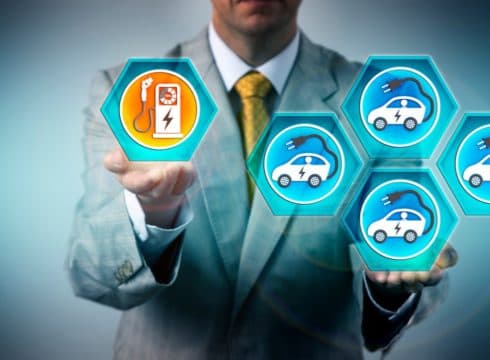India only has 650 charging stations as per official reports in 2018
The average on-road price of electric vehicles in India is not attractive enough for consumers
EV startups and auto majors caught between reducing EV costs and spending money to boost infrastructure
Inc42 Daily Brief
Stay Ahead With Daily News & Analysis on India’s Tech & Startup Economy
As Indian economy is caught up in a slowdown, the future of the automobile industry is pinned on electric vehicles. And EV technology in India is, in turn, highly dependent on innovation and government incentives. At the same time, the government has to tackle the slowdown and invest in future-ready technology at the same time. This has led to a deep dichotomy in the Indian electric vehicles market which has put the future of EV technology in India in a bit of a muddle.
While there is no dearth of government incentives in India, the lack of adequate infrastructure and unaffordable price of EVs are felt by both industry and consumers alike.
To understand where the next phase of development will happen, one has to look at the current problems for electric vehicle adoption in India. These range from systemic issues to consumer mindset, but all of them have a cumulative effect on the future of EVs in India.
What Are The Challenges For The EV Market In India?
- Inadequate charging infrastructure
- Reliance on battery imports
- Reliance on imported components and parts
- Incentives linked to local manufacturing
- Range anxiety among consumers
- High price of EVs currently
- Lack of options for high-performance EVs
- Inadequate electricity supply in parts of India
- Lack of quality maintenance and repair options
- Affected by broader automobile industry downturn
Electric Vehicle Market Challenges In India
When it comes to the future of electric vehicles in India, the major focus will be on propping up the infrastructure related to EVs.
-
Charging Infrastructure
India was reported to have 650 charging stations in 2018, whereas China had over 456K charging points in the same year. In addition to charging points, the lack of private parking spaces is also noted as a hindrance for electric vehicles adoption, and the lack of affordable renewable energy means charging EVs is putting a toll on the already stressed coal-powered electricity grid.
According to auto giant Maruti Suzuki’s research, 60% of Indian customers don’t have their own parking space. “There is no way they can charge the vehicle, therefore they won’t adopt it,” said C V Raman, senior executive director (engineering) of Maruti Suzuki India.
-
High Price Of Electric Vehicles
Further, the average cost of electric cars in India is around INR 13 Lakh, much higher than the average INR 5 Lakh for economical cars run on traditional fuel. Also, the price of electric scooters and motorcycles in India is between the price range of INR 70K – INR 1.25 Lakh, as compared to INR 30K – INR 40K cost range of ICE bikes and even lower for scooters.
Suzuki’s Raman added that under current circumstances, it is going to be difficult to make a good value proposition immediately unless the cost comes down substantially. According to him, a mass segment of EVs are still likely to cost two-and-half times more than the same vehicle type powered by a conventional petrol/diesel-run engine.
-
Range Anxiety
Range anxiety is what consumers suffer from knowing that the electric vehicle might not have sufficient range to take them to their destination. This is deeply linked to the lack of charging infrastructure in the country, and while conventional vehicles can be refueled at petrol stations, such regularised infrastructure is not yet available for EVs.
Rudratej Singh, president and CEO of BMW Group India, also earlier said that the infrastructure for electric vehicles is still ambiguous and uncertain, which would affect the price and acceptability of the vehicle among Indian consumers. Toyota too has recently halted the manufacturing of electric and hybrid cars for the Indian market, citing inadequate charging infrastructure.
-
FAME Policy Flip-Flops
While no one doubts that the Indian government is doing all it can to push EVs, the Faster Adoption and Manufacture Of (Hybrid) And Electric Vehicles (FAME) policy has been criticised by the industry in the past. The government had initially focussed on vehicle standardisation with FAME, which was sidelined for an emphasis on manufacturing. At the moment, the government is busy drafting an EV charging infrastructure framework.
The government is also planning to tax non-electric vehicles heavier even if the sales of electric vehicles might not justify such a forced transition. And this has put undue pressure on automobile OEMs.
{{#name}}{{name}}{{/name}}{{^name}}-{{/name}}
{{#description}}{{description}}...{{/description}}{{^description}}-{{/description}}
Note: We at Inc42 take our ethics very seriously. More information about it can be found here.


